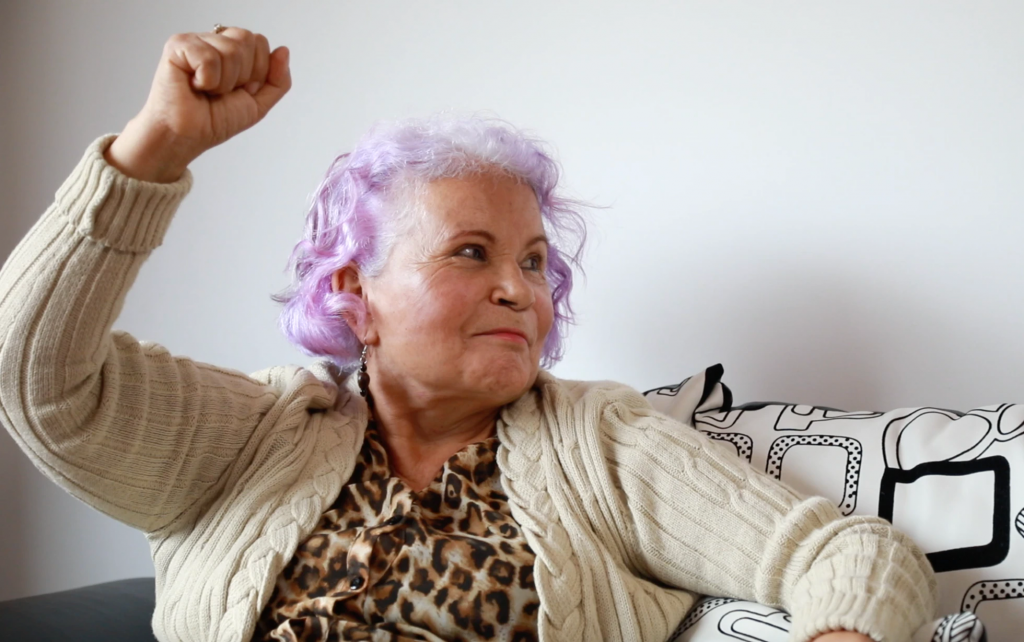
On Friday June 25, Yolanda Chaparro, diagnosed with Amyotrophic Lateral Sclerosis, died at the age of 71. After more than a year of fighting the Colombian health system, she and her lawyer managed to get a medical board to finally accept the procedure that has ended her life. On June 29, the Constitutional Court decided to pick up the case.
Amyotrophic Lateral Sclerosis (ALS)
In 2019, Yolanda was diagnosed with Amyotrophic Lateral Sclerosis (ALS), a terminal disease that affects nerve cells and prevents people who suffer from it from walking, talking, breathing and eating. Progressively, patients with ALS end up completely paralyzed and lose control of their body. In the most severe cases, they can only move their eyes, they need feeding tube, tracheostomy and artificial respiration.
Euthanasia
“Once I found out about the evolution of this disease and the physical and emotional exhaustion began, I convinced myself that the most positive alternative for me was to access euthanasia,” Yolanda explains. She continues: “It’s the only way to rest and end a life of burden and pain.”
Although Yolanda made the decision to die with dignity in June 2020, doctors repeatedly denied her the right to euthanasia because, according to them, her health and quality of life were not sufficiently deteriorated. According to the board of specialists in charge of the case, to authorize the procedure Yolanda had to be “completely bedridden or use a wheelchair, her ability to speak had to be unintelligible, she had to need help in all the activities of her daily life, and she even had to be unable to chew.”
#YolandaTomaEl Control
Lucas Correa, director of research at DescLAB, Laboratory of Economic, Social and Cultural Rights, and Yolanda’s lawyer, explains that this refusal by the Colombian health system violated the right to a dignified death through euthanasia, enshrined in Colombia since 2014. “The doctors forced her to wait for her health to deteriorate further, just what she wanted to avoid,” Correa says.
DescLAB therefore started a campaign: #YolandaTomaEl Control.
Read all about it on their website: DescLAB | #YolandaTomaElControl
Request to Constitutional Court
Lucas Correa also asked the Constitutional Court to reflect on the case.
He says the decision to compel a person who has a serious, progressive, incurable disease to wait for his health and quality of life to deteriorate to points incompatible with his idea of dignity, is contrary to:
- the right to die with dignity
- the right to a dignified life
- the right to the free development of one’s personality
- the right to the prohibition of torture
Letter of WFRtDS
In order to support the request of Correa, WFRtDS sent the court a letter. We stated that now Colombians with a serious non terminal illness who also want to have their life and unbearable suffering being terminated are compelled to prolonged suffering and violation of their rights to die with dignity. We said the current system, that gives access to euthanasia only to people with a terminal end-stage disease, restrains several rights:
- the right to die with dignity
- the right to autonomy
- the right to live protected against torture and other ill-treatment
Read the full letter below.
What’s next?
On June 29, the Constitutional Court decided to pick up the case.
Judge Cristina Pardo Schlesinger will be the rapporteur and it is in her hands now to review the case.
Correa hopes the judge will create constitutional jurisprudence to eliminate the requirement of terminal illness to access euthanasia: “This is Yolanda’s legacy, to expand and deepen the right to die with dignity so that neither doctors nor the Health System can make authoritarian, paternalistic and illegitimate impositions on the end of people’s lives and death. It’s a fight that continues.”

 Colombia
Colombia